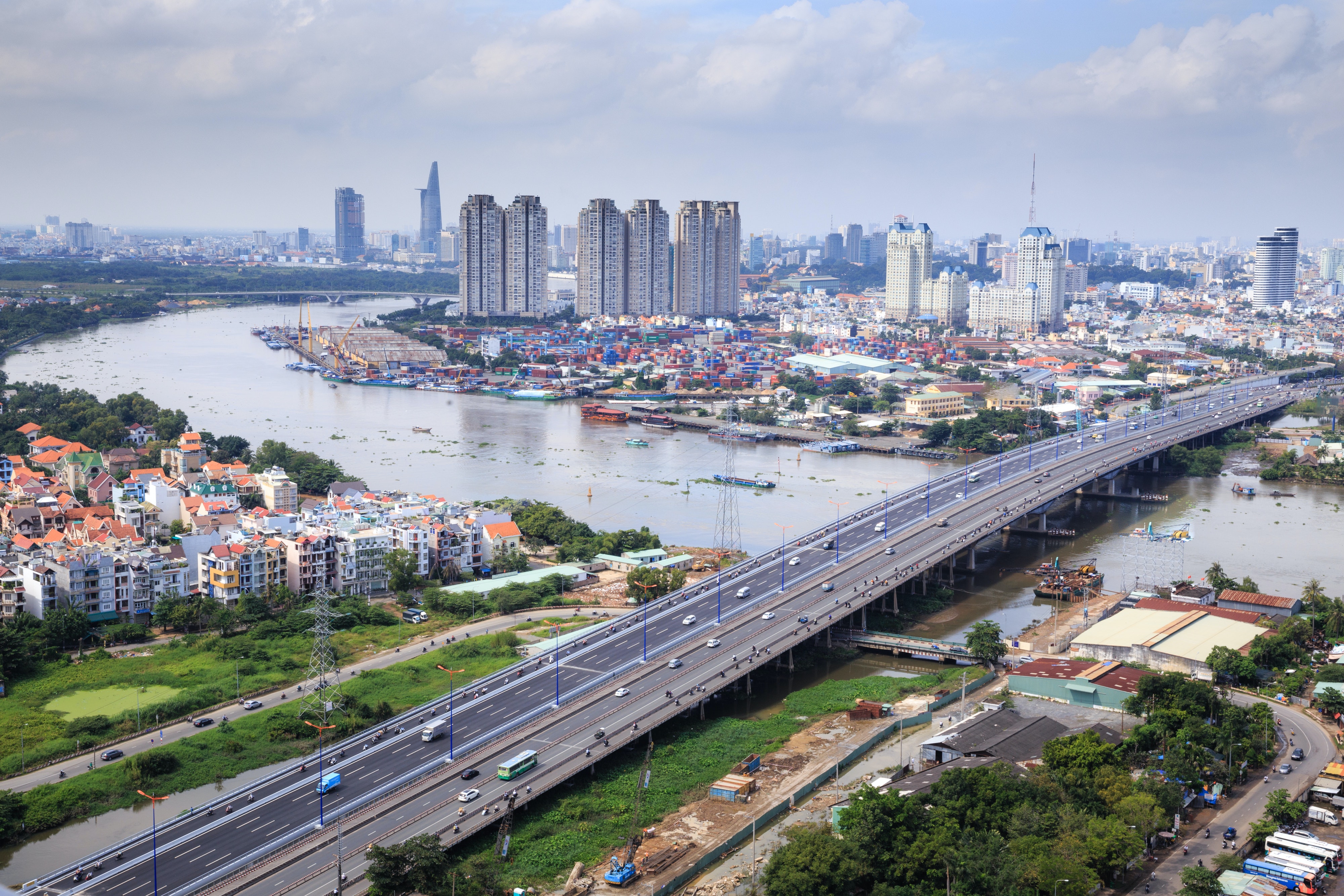Vietnam Economy
Vietnam: Unlocking More Opportunities to Attract U.S. Investment

During March 2023, Vietnam witnessed the arrival of the largest-ever delegation of American businesses. Ted Osius, the Chairman and CEO of the U.S.-ASEAN Business Council (USABC), expressed, "We have never been busier than we are now. We have witnessed significant demand from investors." Over the past few years, American companies have been actively investing in Vietnam, with a consistent rise in the number of projects and registered capital. In the first half of 2023 alone, U.S. investors contributed over $405 million, ranking 8th among countries and territories investing in Vietnam.
Positive Trends in Investment
There are many reasons why US businesses are attracted to Vietnam. First, Vietnam's open economy and market-oriented which resonates well with the U.S. market. For another, the country's rapid economic growth has resulted in an expanding middle class, leading to increased consumer spending and future market potential. In addition, Vietnam's young and well-educated workforce enhances the country's attractiveness as an investment destination for U.S. companies, particularly in the manufacturing sector. At the same time, favorable investment policies and improved institutional factors further enhance the country's attractiveness to investors. Moreover, Vietnam's strategic location and developed infrastructure offer numerous opportunities for U.S. companies seeking to expand and diversify away from China, creating new avenues for growth. Furthermore, Vietnam's central position in the ASEAN region makes it a gateway for U.S. companies. Finally, the Vietnam-U.S. Trade Agreement (BTA) has played a critical role in reducing trade barriers and fostering favorable conditions for economic cooperation, solidifying Vietnam's position as a preferred investment partner for U.S. companies.
All in all, Vietnam has set ambitious targets, aiming to become a modern industrialized nation with a high average income by 2030 and a developed, high-income country by 2050. According to Resolution 81/2023/QH15, the National Master Plan for the period 2021-2030, and the vision until 2050, Vietnam is targeting an average annual GDP growth rate of around 7% during this period. These aspirations contribute to American investors' positive perception of the Vietnamese market.
Not Yet Realizing Its Full Potential
Despite the positive trend in investment, it is evident that the flow of Foreign Direct Investment (FDI) from the U.S. to Vietnam is still relatively limited and falls short of the country's true potential. To address this, Vietnam can adopt several strategies.
Firstly, diversifying the economy beyond manufacturing and attracting FDI in high-tech sectors like artificial intelligence (AI) and additive manufacturing (3D printing) is vital to avoid stagnating in the middle-income trap.
Secondly, focusing on transitioning towards a consumer market for American companies and capitalizing on the growing middle-class and their increasing spending power. With around 100 million potential consumers, this market segment deserves significant attention.
Furthermore, fostering technology partnerships and strategic cooperation between Vietnamese and American companies can facilitate knowledge transfer and drive innovation. As the global technology leader, the U.S. offers valuable learning opportunities for Vietnam's workforce.
Simultaneously, Vietnam should develop targeted programs and training initiatives to enhance the skills that American investors seek. Continued investment in infrastructure, particularly in transportation, logistics, energy, and digital connectivity, is crucial.
Moreover, improving the business environment by enhancing data transparency, streamlining administrative procedures, and reducing bureaucracy will instill confidence in American investors and bolster Vietnam's appeal as an investment destination. The country must intensify its promotional and marketing efforts to become a leading global investment hub.
To Attract More Foreign Investment
Recently, not just Vietnam, but also countries like India, Indonesia, and Malaysia, have experienced positive waves of FDI from the U.S. Therefore, enhancing competitiveness in attracting FDI is a crucial objective for Vietnam.
To strengthen competitiveness, Vietnam can build credibility as a reliable trade partner by demonstrating its commitment to free trade and a market-oriented economy. Additionally, investing in education to develop a skilled and adaptable workforce, along with providing training programs and partnerships in areas that interest the U.S., is essential.
Furthermore, reinforcing existing trade and investment agreements lays a vital foundation for asserting Vietnam's position. Offering tax incentives for investments in future industries, especially those aligned with U.S. interests, can incentivize American companies to expand their presence in Vietnam.
Improving transparency, risk management in the financial market, and ensuring legal certainty in trade and investment sectors will also enhance Vietnam's appeal compared to other nations.
Moreover, actively promoting Vietnam's investment opportunities through specialized organizations and regular dialogues will expand its presence and attract more FDI.
At the city level, transparency and providing detailed information from localities are crucial to increase the confidence of potential investors, improve planning capabilities, and leverage collaborative strengths.
Vietnam's advantage lies in the competitive landscape among its provinces and cities, as reflected in the Provincial Competitiveness Index (PCI). Foreign investors can leverage this competition to identify provinces with the best conditions for specific investment areas.
For businesses, it is essential to proactively seek future partnerships and capitalize on shared opportunities to create synergies. American investors can benefit from the experiences of Vietnamese businesses operating locally, while Vietnamese companies can gain from knowledge transfer from their American counterparts. Ensuring the freedom of contracts and decisions for each company is vital to ensure mutually unrestricted and voluntary cooperation.
All in all, there is a clear opportunity to attract more "eagles" from the U.S. The visit of 52 American companies exploring the Vietnamese market in March 2023 is a testament to this. Ted Osius shared, "Representatives of other ASEAN countries said that they have to hurry to compete with Vietnam. Now, businesses are looking at Vietnam as a destination for development and opportunities." Therefore, Vietnam should take this opportunity to welcome more "eagles" from the U.S. to add a decisive boost to their long-term economic growth goals.
(This article was written by Prof.Dr.Andreas Stoffers, FNF Vietnam Country Director, and Bugra Kilinc. He is currently a Junior Researcher at the Friedrich Naumann Foundation for Freedom Office in Hanoi, Vietnam, particularly involved in fields related to risk management, real estate and bond markets, and sustainable development in developing and emerging markets).

